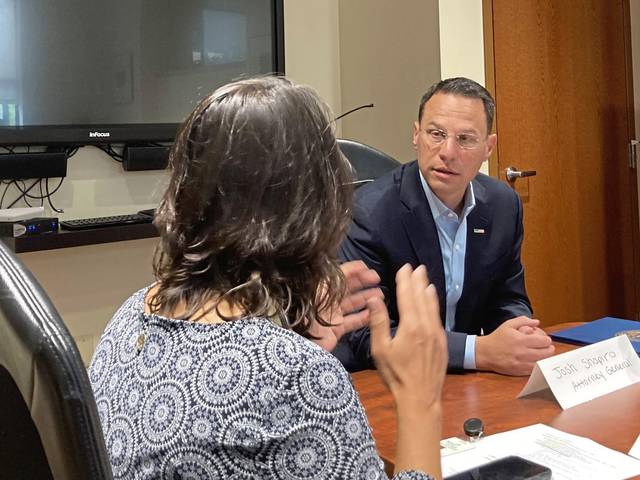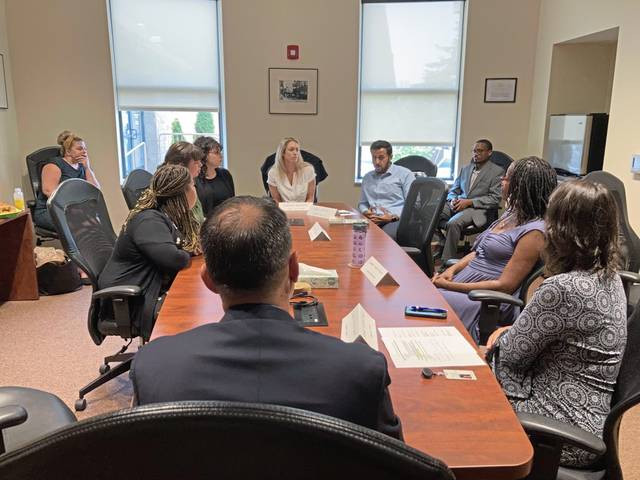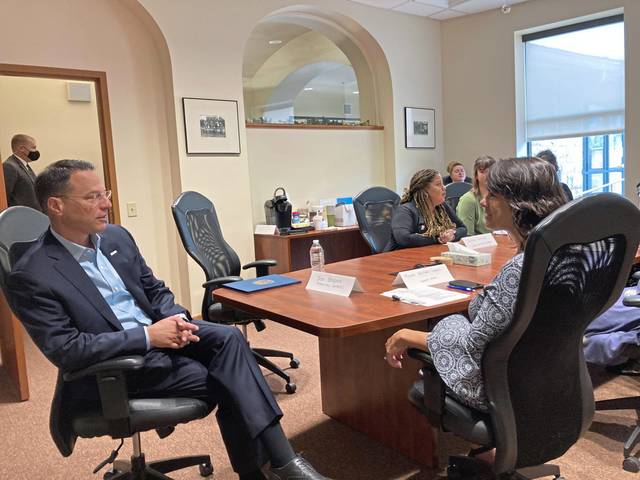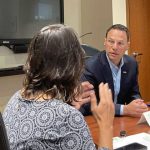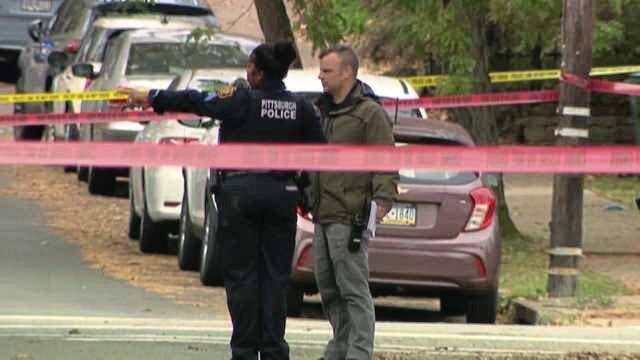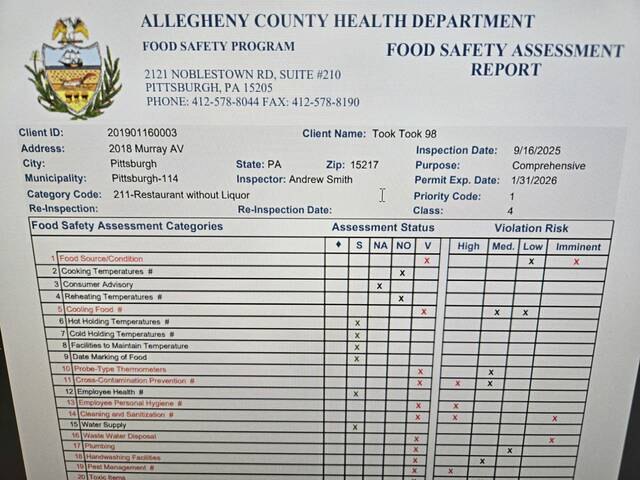Pennsylvania Attorney General Josh Shapiro listened Thursday as the staff of a East Liberty-based nonprofit detailed how it is spending the $250,000 donation Pittsburgh Water and Sewer Authority agreed to make to the group to resolve a state investigation that found the authority exposed people to increased lead levels when it replaced pipes in 2016 and 2017.
“What are you doing with the money?” Shapiro asked the staff of Women for a Healthy Environment.
Because of covid-related shutdowns, the group hasn’t spent much, said Michelle Naccarati-Chapkis, the group’s executive director.
“We have a nice chunk of it left,” she said.
She didn’t detail exactly how much was spent thus far. The group sends an invoice to PWSA when it spends money on a lead program and is reimbursed from the $250,000, Naccarati-Chapkis said.
PWSA didn’t immediately respond to requests for comment.
The pandemic has allowed the group to do a year’s worth of “thoughtful planning,” Naccarati-Chapkis said.
As covid restrictions are eased they have a plan for the future, she said.
The main focus is to spread the word about the dangers posed by exposure to lead, be it in tainted drinking water or through exposure to lead dust that’s present in older houses where lead-based paint was used.
During the pandemic, the group used its social media presence to inform people. It also used things like food distributions that went on during the pandemic to engage with people, Hanna Beightley, the group’s healthy homes coordinator said.
Pittsburghers have shown their support for a Pittsburgh lead safety law. Yet, Pittsburgh has done less than Cleveland,...
Posted by Get the Lead Out, Pittsburgh on Tuesday, July 13, 2021
The Get the Lead Out, Pittsburgh website also serves as a clearinghouse for lead-related programs offered in Pittsburgh and Allegheny County.
Now that pandemic restrictions have lifted, “we’re at any event you can possibly think of,” Beightley said.
They distribute water filers, cleaning kits and other information about how to find more information about the dangers of exposure to lead and how to set up a lead-risk assessment if someone fears they may be exposed to lead.
They’re also working with community groups in each of Pittsburgh’s neighborhoods to spread the word, Beightley said.
Do you have questions about your child's development, especially related to lead exposure?
— Get the Lead Out, Pittsburgh (@GTLOpgh) July 14, 2021
Tune in tomorrow at 1pm as Karin Shafer of The Alliance for Infants and Toddlers, goes LIVE to discuss the risks of lead exposure & how you can protect your children. #GetTheLeadOutPgh pic.twitter.com/UrxAzXgXM5
They’re also working with city and county officials to improve the region’s response to its lead issues, Naccarati-Chapkis said.
Last September, city Councilman Corey O’Connor hosted a meeting with officials from Rochester, N.Y., a city that’s often used as a model for its response to resolving lead issues.
Rochester uses an aggressive program started in 2005, when the city adopted a lead paint poisoning prevention ordinance. It’s proved to be successful similar laws are now in place in Cleveland and Toledo.
Rochester also inspects rental homes for lead levels, mainly in paint, instead of waiting for test results from children who were living in them, officials told their counterparts in Pittsburgh.
Local officials haven’t proposed legislation yet, but the hope is they will, Naccarati-Chapkis said.
Women for a Health Environment also supports the $20 million Pittsburgh has proposed to allocated to PWSA for lead removal, she said.
“We need to make that investment,” Naccarati-Chapkis said.


